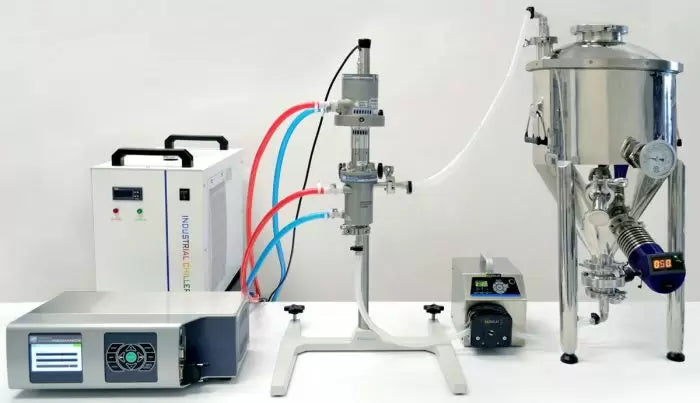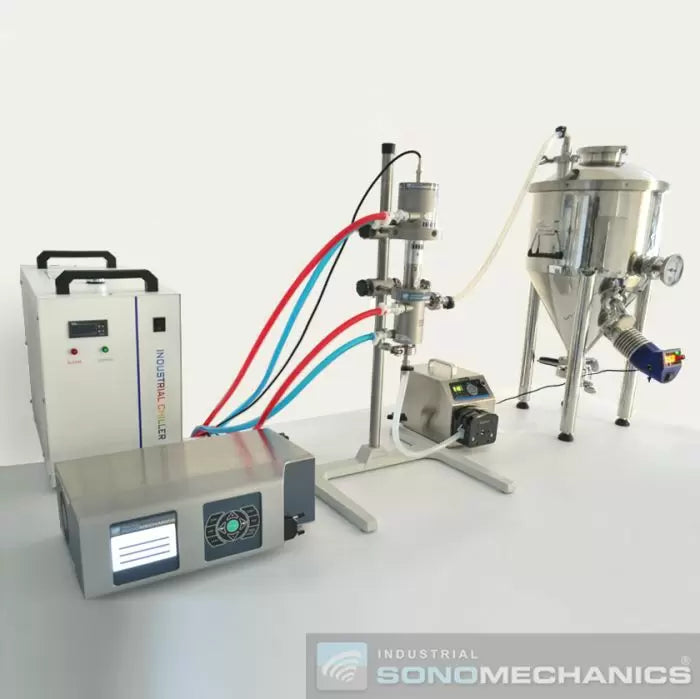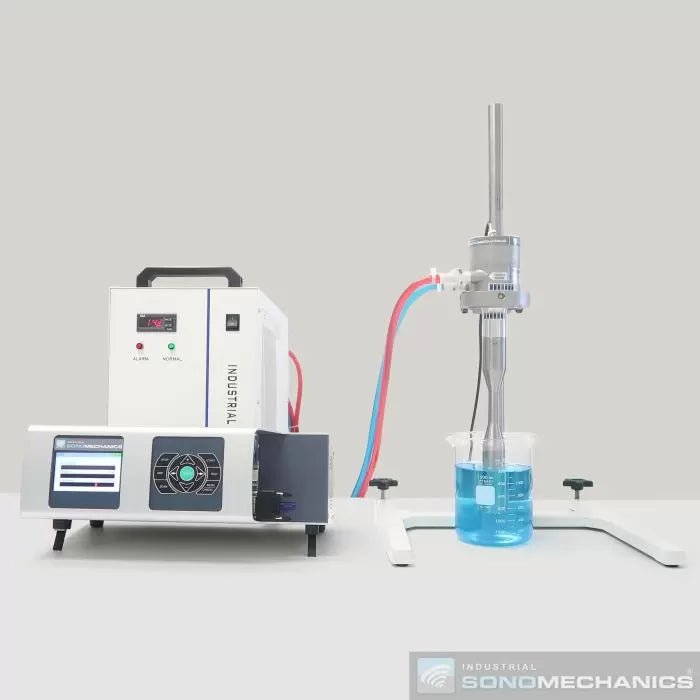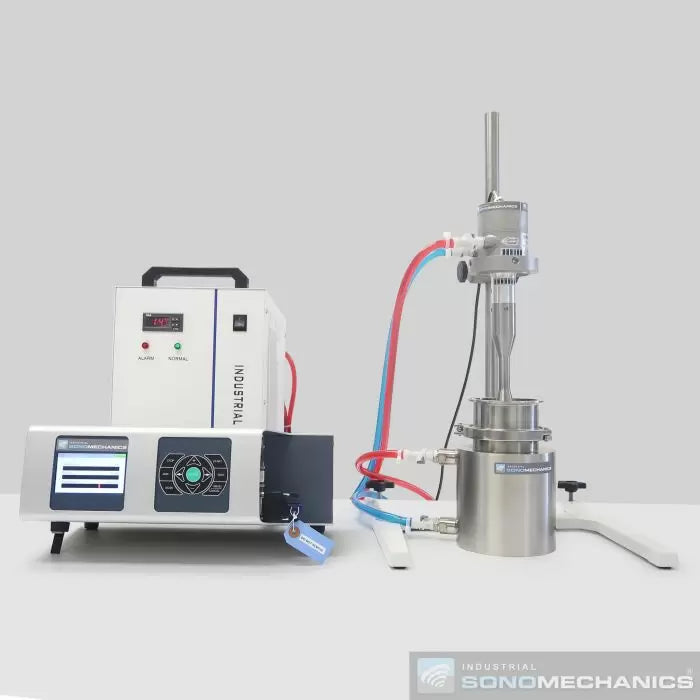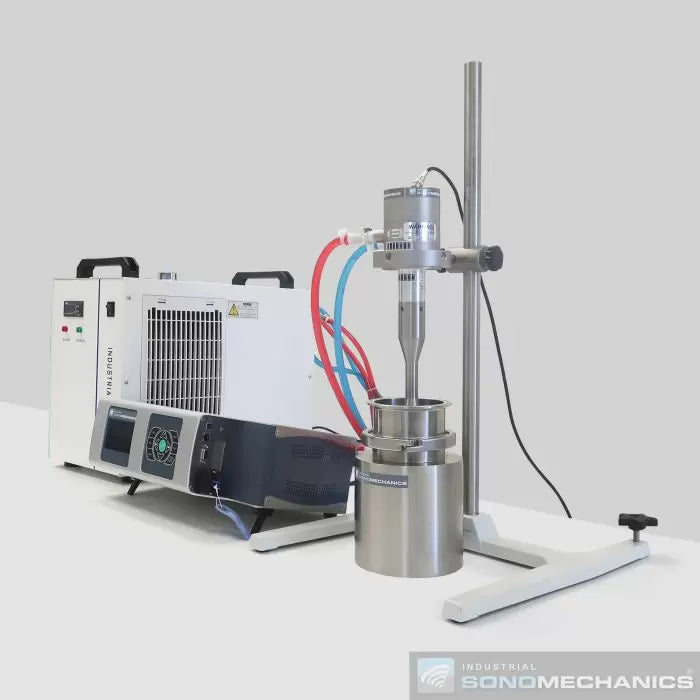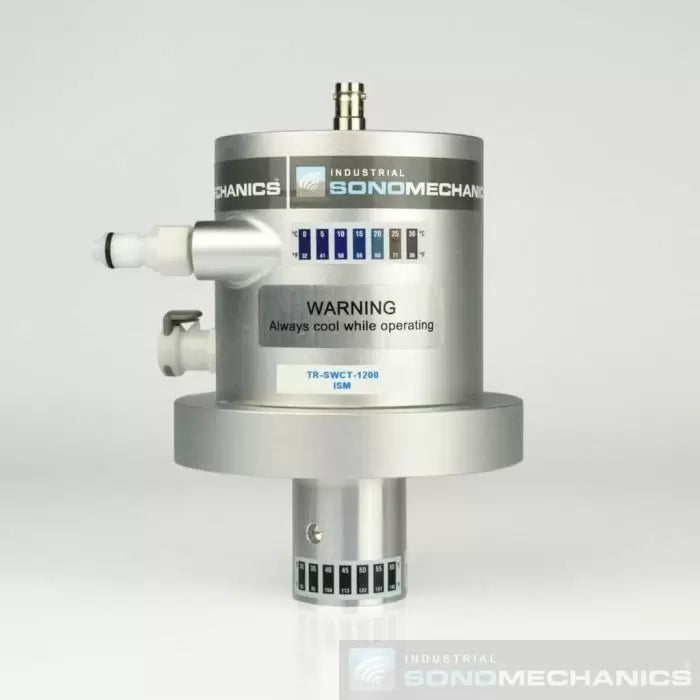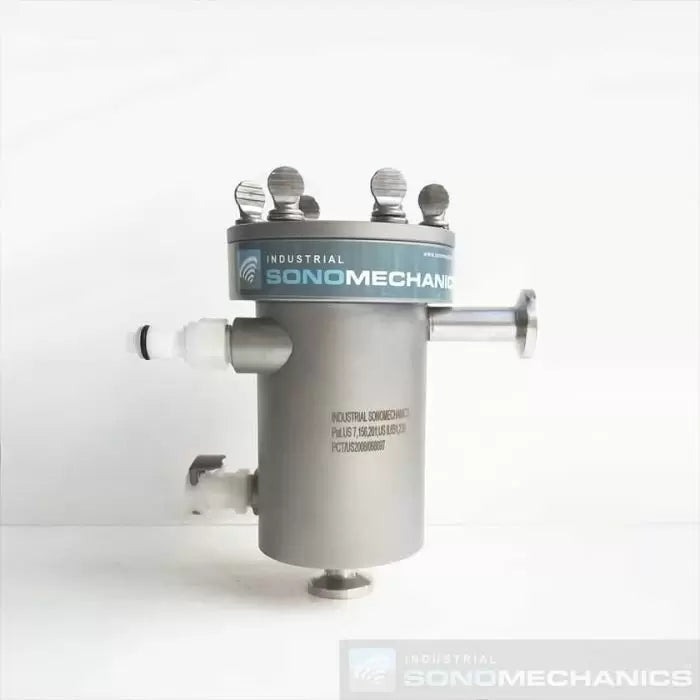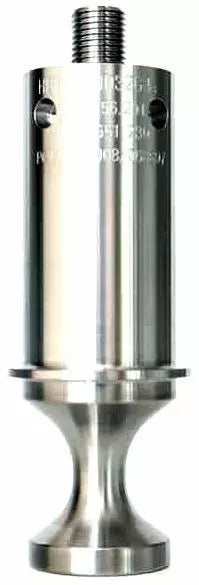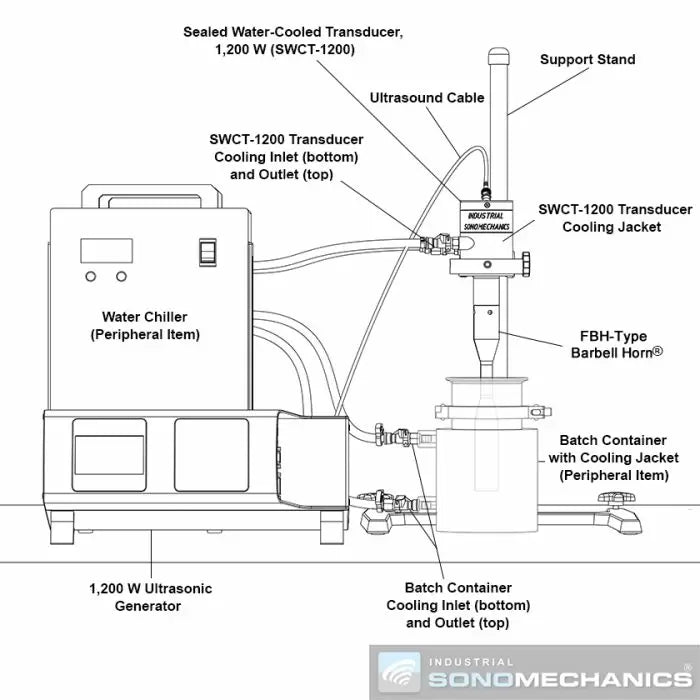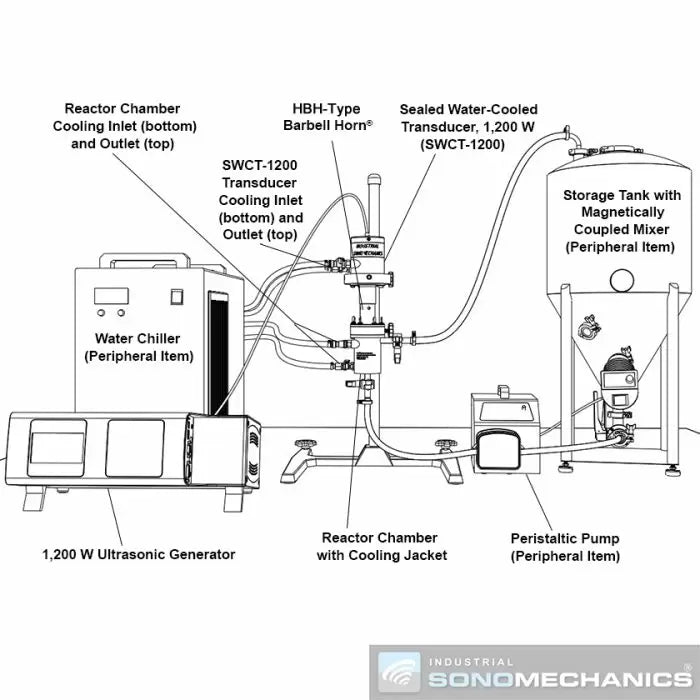Ultrasonic homogenizers, the modern version of "mortar and pestle", they can disrupt tissues and cells through cavitation and ultrasonic waves. Basically, an ultrasonic homogenizer has a tip which very rapidly vibrates, causing bubbles in the surrounding solution to rapidly form and collapse. This creates shear and shock waves which tear apart cells and particles.
Ultrasonic Homogenizers are recommended for homogenization and lysis of laboratory samples that do not require traditional shredding or rotor-stator cutting techniques for processing. Small and large ultrasonic probes are used in a variety of sample volumes to be processed. A solid probe allows for less chance of sample loss and cross-contamination between samples.
Sonication is the act of applying sound energy to agitate particles in a sample, for various purposes. Ultrasonic frequencies (around 20 kHz) are usually used, leading to the process also being known as ultrasonication or ultra-sonication. In the laboratory, it is usually applied using an ultrasonic bath or an ultrasonic probe, colloquially known as a sonifier.
Sonication can be used for the production of nanoparticles, such as nanoemulsions, nanocrystals, liposomes and wax emulsions, as well as for wastewater purification, degassing, extraction of plant oil, extraction of anthocyanins and antioxidants, production of biofuels, crude oil desulphurization, cell disruption, polymer and epoxy processing, adhesive thinning, and many other processes. Sonication is also commonly used in nanotechnology for evenly dispersing nanoparticles in liquids.
Now including a new large-capacity filter ideal when working with larger nanoemulsion volumes. The large-capacity filtration system comprises a stainless-steel housing (one-time purchase) and a replacement cartridge (consumable). Each cartridge is capable of handling significantly larger nanoemulsion volumes than the previous filters and it can be cleaned and reused many times before it needs to be replaced (so not only more efficient but also lower cost of ownership)
BSP-1200 in Continuous Mode
The BSP-1200 bench-scale ultrasonic liquid processor from Industrial SonoMechanics
The BSP-1200 ultrasonic liquid processor is designed for procedure optimization and bench-scale production. It is suitable for working with liquid volumes above 500 mL, with no upper limit.
Features
- The BSP-1200 ultrasonic liquid processor is most commonly supplied with a 1200 W ultrasonic generator, water-cooled transducer, half-wave Barbell Horn, and flow-through reactor chamber (flow cell). Optional items include a full-wave Barbell Horn and support stand.
- The BSP-1200 processor can be used in batch and flow-through (continuous) configurations (see schematics on the left). Details are available under the SPECIFICATIONS tab.
- The BSP-1200 processor utilizes patented Barbell Horn Ultrasonic Technology (BHUT), which makes it possible to generate extremely high ultrasonic amplitudes at any scale of operation. By upgrading to our larger BHUT-based unit, the ISP-3000, any process optimized with the BSP-1200 can be directly scaled-up to an industrial production environment, while maintaining the same processing conditions and reproducible results.
Commercial Production of Water-Soluble botanical extract and flower extract by High-Intensity Ultrasound
BSP-1200 in Batch Mode
| Model | BSP-1200 |
| Electrical requirements |
100V-120V (20A max.), 220V-240V (10A max.), 50/60Hz |
| Ultrasonic output | 3000 V rms (max.), 20 (+/- 1) kHz, 1200 W (max.) |
| Water-cooled piezoelectric transducer (SWCT-1200) |
Output Characteristics: amplitude 24 microns (max.), frequency 20 (+/- 1) kHz, power 1200 W (max.) |
| Half-wave Barbell Horn (HBH, 32 mm tip diameter) |
Output characteristics: amplitude 93 microns (max.), frequency 20 (+/- 1) kHz, power 1200 W (max.) |
| Flow-through reactor chamber (flow cell) |
: 1/2" tri-clamp inlet and outlet, cooling jacket with valved quick-disconnects. |
| Materials of wetted parts |
Reactor chamber 304 Stainless Steel. Food compatible. Horns (FBH, HBH) Grade 5 Titanium (Ti6Al4V). Food compatible. Gaskets Buna-N or Teflon. Food compatible. O-rings Buna-N. Food compatible. |
| Noise level |
103 - 106 dBa at 2' away. Noise reducing earmuffs or sound enclosure required. |
| Capacity |
500 ml - 2 L with FBH (batch mode) |
| Productivity rates | Productivity rates are highly dependent on the nature of each process and range from about 1 L/h for challenging tasks (e.g., top-down nanocrystallization of active pharmaceutical compounds) to over 50 L/h for fast processes (e.g., degassing, deagglomeration). 5 times faster processing than with the LSP-600 |
| Optional accessories |
Full-wave Barbell Horn (FBH, 35 mm tip diameter, amplitude 92 microns (max.)) Support stand with clamp holders Noise reduction ear muffs |
| Warranty | One year |
| Download | , |
| Reading | , |
Specifications
|
Standard package
|
Payment & Security
Your payment information is processed securely. We do not store credit card details nor have access to your credit card information.

